‘Lucky’ Chalmers’ spending spree fuels deficit explosion
Jim Chalmers has added $104bn in spending while raising taxes by $44bn, squandered fiscal restraint opportunities and relied on luck, according to budget analysis warning of deficit blowouts.
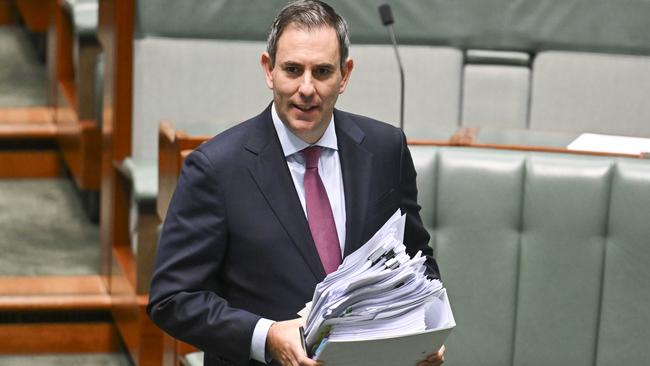
Jim Chalmers has added $104bn in spending while raising taxes by $44bn, squandered fiscal restraint opportunities and relied on luck, according to new analysis warning of deficit blowouts compared to May budget predictions.
Updated forecasts by leading economist Chris Richardson show spending levels returning to Covid pandemic highs and an expectation cash headline deficits will total $220bn between now and mid-2028 amid “increasingly dodgy” off-budget expenditure.
After the Treasurer banked back-to-back surpluses totalling $37.9bn, driven primarily by war, migration and inflation factors, Mr Richardson has declared Australia’s “budgetary luck is running out” and is forecasting underlying cash deficits to be at least $10bn worse off by 2027-28.
The new data comes as Anthony Albanese and Peter Dutton embark on an informal election blitz of battleground seats this week, with both leaders selling their credentials on economic management ahead of a federal poll that could be as early as next March.
Ahead of the release of national accounts data on Wednesday, which is expected to reveal the economy grew by a paltry 0.4 per cent in the September quarter, commonwealth monthly financial statements last week revealed the budget was running a $23bn deficit at the end of October.
In his new report, titled The Carnival is Over, Mr Richardson said “Lucky (Jim) Chalmers” had enjoyed the “most favourable environment to the budget in a century and a half”.
“But our budgetary luck is running out – instead of write-ups, the budget is now edging into writedown territory. That’s because iron ore prices are down, inflation is down too, and migration is slowly slowing, while the hollow log provided by past Treasury conservatism is a lot less hollow than it used to be,” he wrote.
“We’ve been reliant on a lopsided strategy. The government’s budget rules boil down to ‘don’t blow all of our luck’. But what happens when good luck is finally overtaken by bad luck?”
The Rich Insight founder described the Albanese government as the “luckiest … Australia has ever seen, at least in budgetary terms”, and accused Labor of not taking “the opportunity to get the national budget better prepared for the long haul, let alone grab the chance to use its huge windfall to buy its way towards much needed reforms”.
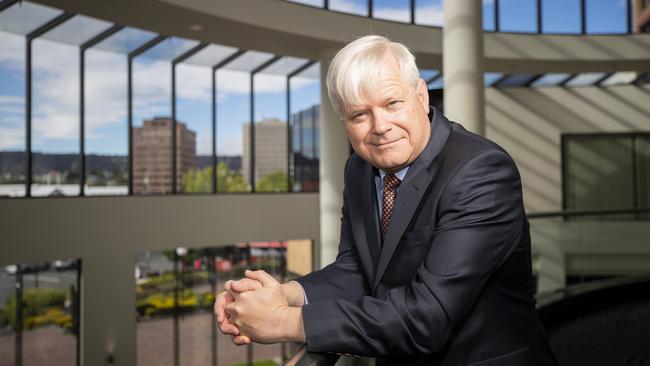
Dr Chalmers, who on Sunday confirmed the mid-year budget update released later this month would forecast “slow growth in our economy to continue in the near-term”, defended the government’s efforts to rein in structural spending pressures across the NDIS and aged care.
But as the government prepared to unveil a major new childcare package to take to voters next year, some economists are warning Labor that implementing a floated flat daily fee for childcare would lead to an “explosion of costs” and primarily benefit high-income households rather than struggling families.
“We’ve been upfront for some time that pressures on the budget are becoming more challenging, not less. We’ve overseen the biggest-ever fiscal turnaround in a single term, turning two big Liberal deficits into two substantial Labor surpluses, and that’s a powerful demonstration of the Albanese government’s responsible economic management,” he said.
“We’ve taken action to address the biggest structural pressures, like saving $80bn in interest costs and reforming the care economy so aged-care spending grows at 5.2 per cent over the next decade, not 5.7 per cent, and the NDIS at around 8 per cent instead of 19 per cent.”
Mr Richardson, who highlighted “tragic” budget spending including the Western Australia GST deal and poor targeting underlying the NDIS blowout, said “we’ve been wasting time”.
“Since being elected the government has made decisions that have added $104bn to spending, while also raising taxes by $44bn – for a net worsening of the budget bottom line by $60bn,” he wrote.
“It could have been worse: it’s true we didn’t eat all the Tim Tams plonked in front of us: a net spend of ‘only’ $60bn says we saved 84 per cent of our $365bn windfall. Yet that’s not real restraint: it’s a wasted opportunity.”
In response to Mr Richardson’s report on Sunday, Dr Chalmers said “we’ve made a lot of progress in only two years – inflation is falling, real wages are growing, more than a million jobs have been created, we’ve overseen a $172bn budget turnaround, but it’s not mission accomplished because people are still under pressure”.
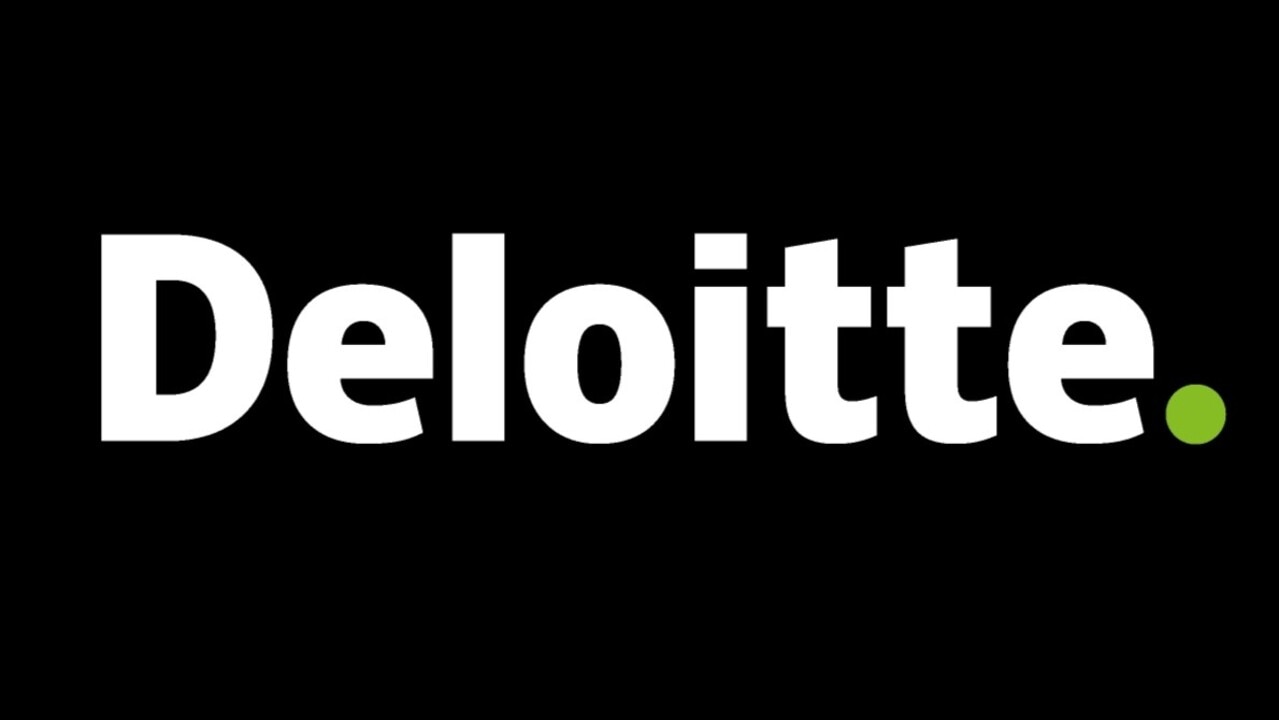
With the government expected to unveil new cost-of-living relief measures ahead of MYEFO, Dr Chalmers said “we acknowledge that even with the remarkable progress we’ve made in the national data, that doesn’t always translate to how people are faring and feeling in the economy”.
Ahead of the Australian Bureau of Statistics releasing more than a dozen economic indicators this week – headlined by national accounts figures – Dr Chalmers said: “We know that higher interest rates, global economic uncertainty and cost-of-living pressures are weighing on households and the economy.”
With Anthony Albanese and Peter Dutton under pressure to present election policies committing to meaningful economic reform, Mr Richardson lamented there had been “little to no structural reform of either the economy or the budget for two decades now, with the dumb stuff we do in our national social compact – the federal budget – coming at a rising cost to Australia and Australians”.
“There’s a $10bn hole in the budgetary bucket – each and every year – because our tobacco tax policies are so dumb. Our tax policies are also dumb with superannuation. And they’re diabolically dumb with PRRT (petroleum resource rent tax). Meanwhile, it isn’t only with respect to minerals that we’ve failed to properly tax rents: we don’t have the right rate for our major bank levy either.
“Ignoring spending that’s likely but hasn’t actually been announced (such as another year of electricity subsidies and new universal childcare subsidies), I forecast coming cash underlying deficits through to 2027-28 to be $10bn worse than Treasury estimated in May’s budget.
“Yet there’s also increasingly dodgy action off-budget, so coming cash headline deficits may be $20bn worse than Treasury estimated in the May budget, meaning they’re set to total $220bn between now and 2027-28.”
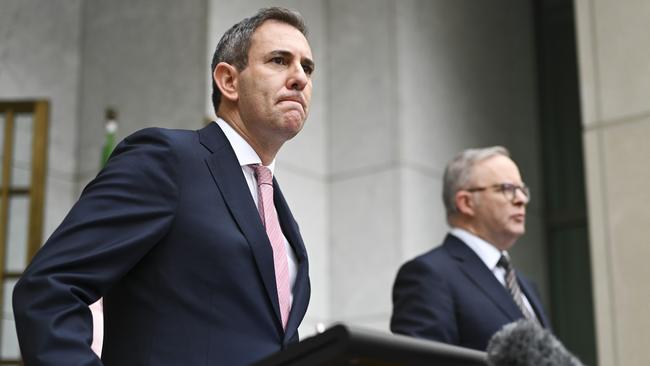
Another report released on Monday, by independent analyst and industry forecaster Oxford Economics Australia, warned that economic growth would remain subdued next year after a dour 2024.
The report says budget and political outlooks would become more challenging in the 2025 election year, with lower commodity prices weighing heavily on revenues and the budget position swinging “sharply back into deficit”.
“At the same time, inflation and cost-of-living pressures are likely to encourage an electoral swing against the Albanese government. Similar swings against incumbent governments have occurred in several advanced economies in recent years, including in the recent US election,” it said.
Oxford Economics Australia macroeconomic forecasting head Sean Langcake said the economy is “still operating beyond its capacity, which is keeping upward pressure on inflation”.
“Our forecast for growth in 2025 is much lower than it was a year ago, owing to the lingering inflation problem and tight policy settings. Moreover, our forecast of a 2 per cent expansion in 2025 is slightly below the consensus outlook. All told, we’re not expecting a rate cut until at least May, with a possibility of that first cut being pushed out to Q3 if underlying inflation remains stubbornly high,” Mr Langcake said.
“Broadly speaking, the Albanese government has run a disciplined fiscal ship, electing to cycle significant revenue windfalls back into improving the budget’s bottom line. This is notwithstanding a shift toward looser policy in the May budget in the form of universal utilities subsidies.”



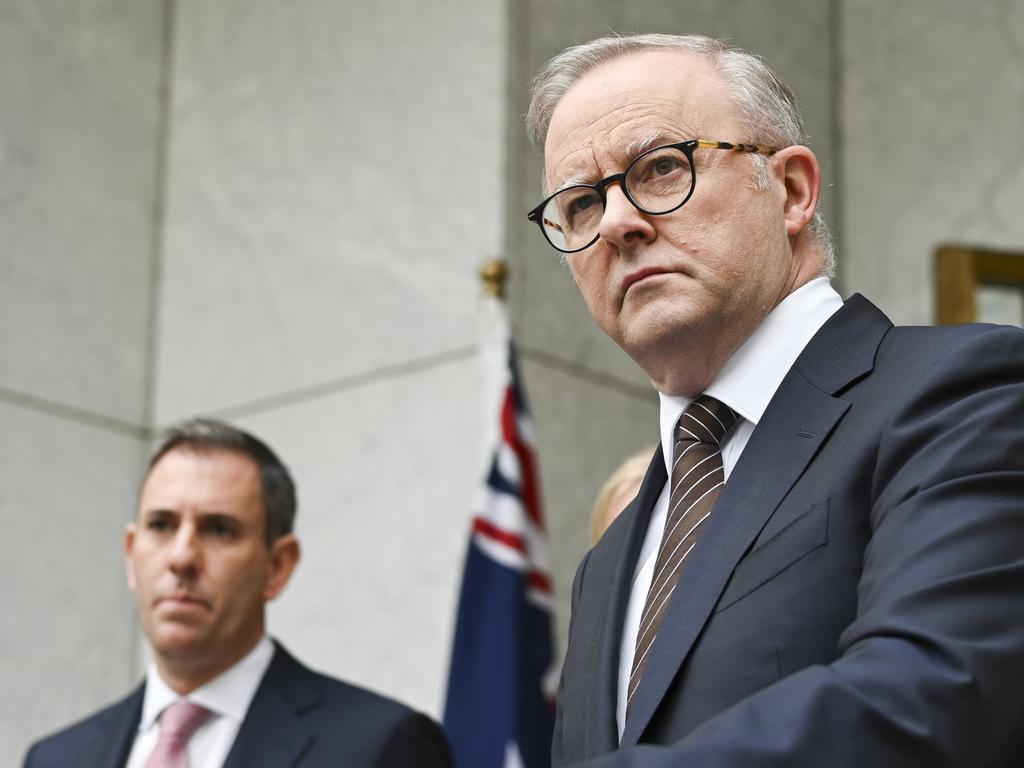



To join the conversation, please log in. Don't have an account? Register
Join the conversation, you are commenting as Logout